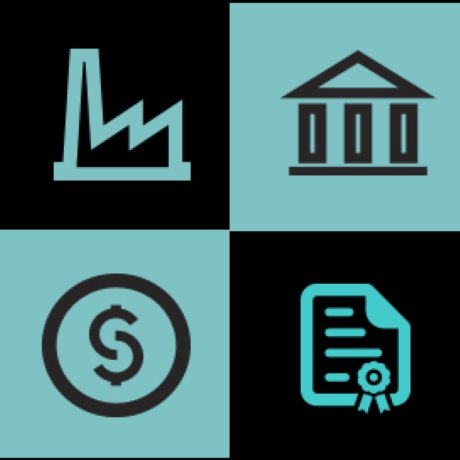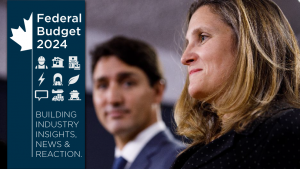Canada’s national engineering associations welcome the federal government’s two-phased commitment to infrastructure spending over the next decade but one of them, the Association of Consulting Engineering Companies-Canada (ACEC), has concerns over the back-loaded phasing of the spend.
ACEC president and CEO John Gamble notes that there is significant engineering that goes into major infrastructure projects before building can begin, so putting off project allocations into the Liberals’ newly announced second phase of funding means the builds are that much further away from getting underway.
"I think on balance we’re very pleased that they did follow through on the major infrastructure commitments, but I’m a little curious about how they’re presenting the Phase 1 and Phase 2," said Gamble in an interview.
"It’s not necessarily problematic though it does suggest that much of the money is back-end loaded. As long as they’re mindful that they want shovel-ready projects next year and the year after that and through the duration of the 10-year commitment, we need the engineering, we need the architecture, we need the design work on the table yesterday."
The ACEC also said it was disappointed there was little help for the resource sector, called the deferral of tax relief for small businesses "unfortunate" and lauded the government focus on innovation.
Finance Minister Bill Morneau’s first budget, unveiled March 22, reaffirmed the Liberals’ commitment to spend $120 billion on infrastructure over the next 10 years, financed by deficit spending over the first four years at least starting with a shortfall of $29.4 billion forecast for the 2016-17 fiscal year.
Morneau laid out a first phase of infrastructure spending at $11.9 billion that will support near-term investments in basic projects such as water and wastewater systems, public transit and affordable housing.
The budget document says Phase 2 includes "broader and more ambitious" projects leading to "a more modern, cleaner economy, a more inclusive society and an economy better positioned to capitalize on the potential of global trade."
"There’s things they want to happen quickly but they did at least acknowledged that with most infrastructure assets, the real value is their strategic importance to our overall economy," said Gamble.
Engineers Canada praised infrastructure spending on targeted sectors, mentioning specifically in a statement "building resilient and sustainable infrastructure, improving water distribution and treatment and investing in First Nations communities."
"This budget represents an investment in a vision of Canada that is built on a strong foundation of science, creativity and innovation," said Engineers Canada CEO Kim Allen in the statement.
A budget reaction statement from the ACEC also acknowledged the Liberal government’s focus on science. "While encouraged that the government proposes a rigorous environmental assessment process based on science, ACEC will be seeking assurances that processes will be efficient and won’t encourage frivolous or vexatious delays to infrastructure and resource projects that are important to the economy," the statement indicated.
Noting that the promised Canada Infrastructure Bank was not mentioned in the budget, Gamble said he expects it is coming but this delay, too, means stakeholders are forced to wait and see how the new policy tool will work.
"The point of an infrastructure bank is to allow access to capital," he said. "There had been rumours that they were going to focus exclusively on PPPs (public-private partnerships), and I’m agnostic when it comes to PPPs, but we just need to be mindful that PPPs are the right model in many cases but they’re also a very ill-suited model in many cases."
Gamble said he hopes the Canada Infrastructure Bank’s mandate includes assistance to help the resource sector access capital. Canadians should not forget the vital role the resource sector has played in Canada in the past and will continue to play if supported, he said.
"It’s been the resource sector more often than not over the last century that’s given us the ability to modernize our economy," said Gamble.
"It’s allowed us to put in public policy that allows us to have mutual responsibility for one another."
Running a deficit is not a problem as long as there is an eventual plan to pay it off, he said.
"Inherent in a long-term sustainable infrastructure program is the long-term sustainability to fund it," said Gamble. "While the deficit is of concern, I think the real issue is debt management in the long term. They’ve seemed to acknowledge that like anything in our home lives, I’d rather not have a mortgage than have a mortgage but it doesn’t make me irresponsible that I have a mortgage as long as I’ve got a plan to pay it off in a reasonably responsible manner.
"It’s something we’ll have to watch."
Overall, the budget signals a return to the recognition that supporting basic infrastructure is an essential role of government, Gamble said.
"It’s something that we have retaught ourselves as a society, that infrastructure is a core business of government," he said. "It is not discretionary, it is what government by definition is intended to do."











Recent Comments
comments for this post are closed